Joe Biden delivers inaugural cancer research lecture at Imperial
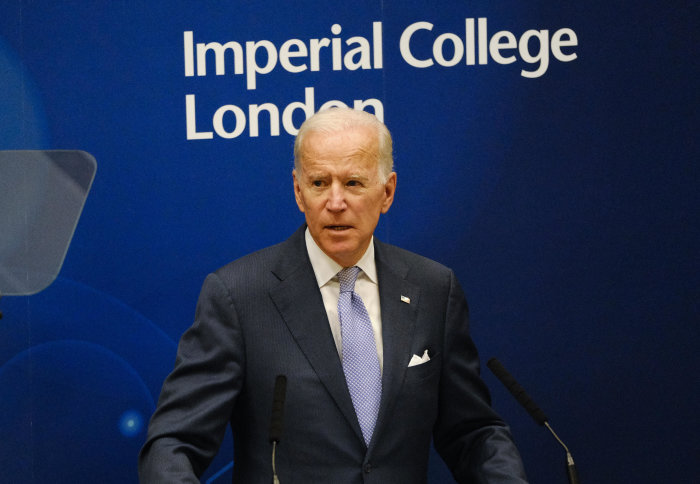
The 47th Vice President of the United States Joe Biden, delivered the inaugural lecture of the Imperial Cancer Research UK (CRUK) Centre.
The Imperial CRUK Centre is a research collaboration that brings together scientists, clinicians, engineers and physicists in the fight against cancer.
Vice President Biden used the occasion to speak of the “urgency of now” as cancer research realises a radical, highly collaborative and progressive step-change, surpassing that of the Nixon-era “war on cancer”.
The lecture was hosted by the Imperial CRUK Centre’s Director Professor the Lord Darzi of Denham, who also directs Imperial’s Institute of Global Health Innovation, and Imperial’s President Alice Gast.
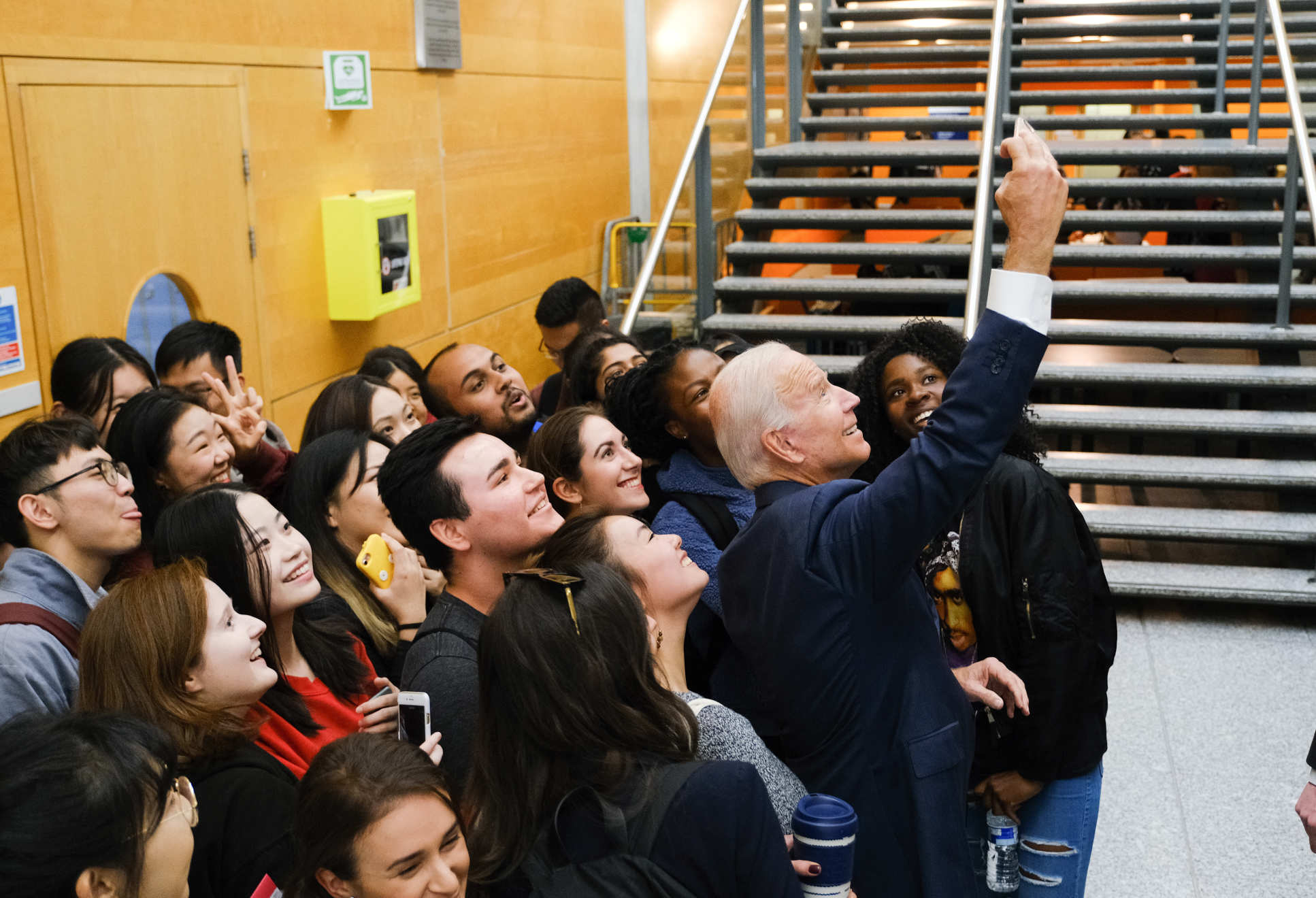
Vice President Biden detailed how the Biden Cancer Initiative, established in 2017, is building on the work of the Obama Administration’s Cancer Moonshot that raised billions of dollars to rapidly accelerate cancer research.
The Bidens’ son Beau, a decorated Iraq war veteran and attorney general of Delaware, died in May 2015, aged 46, after being diagnosed with a brain tumour.
Breaking down silos
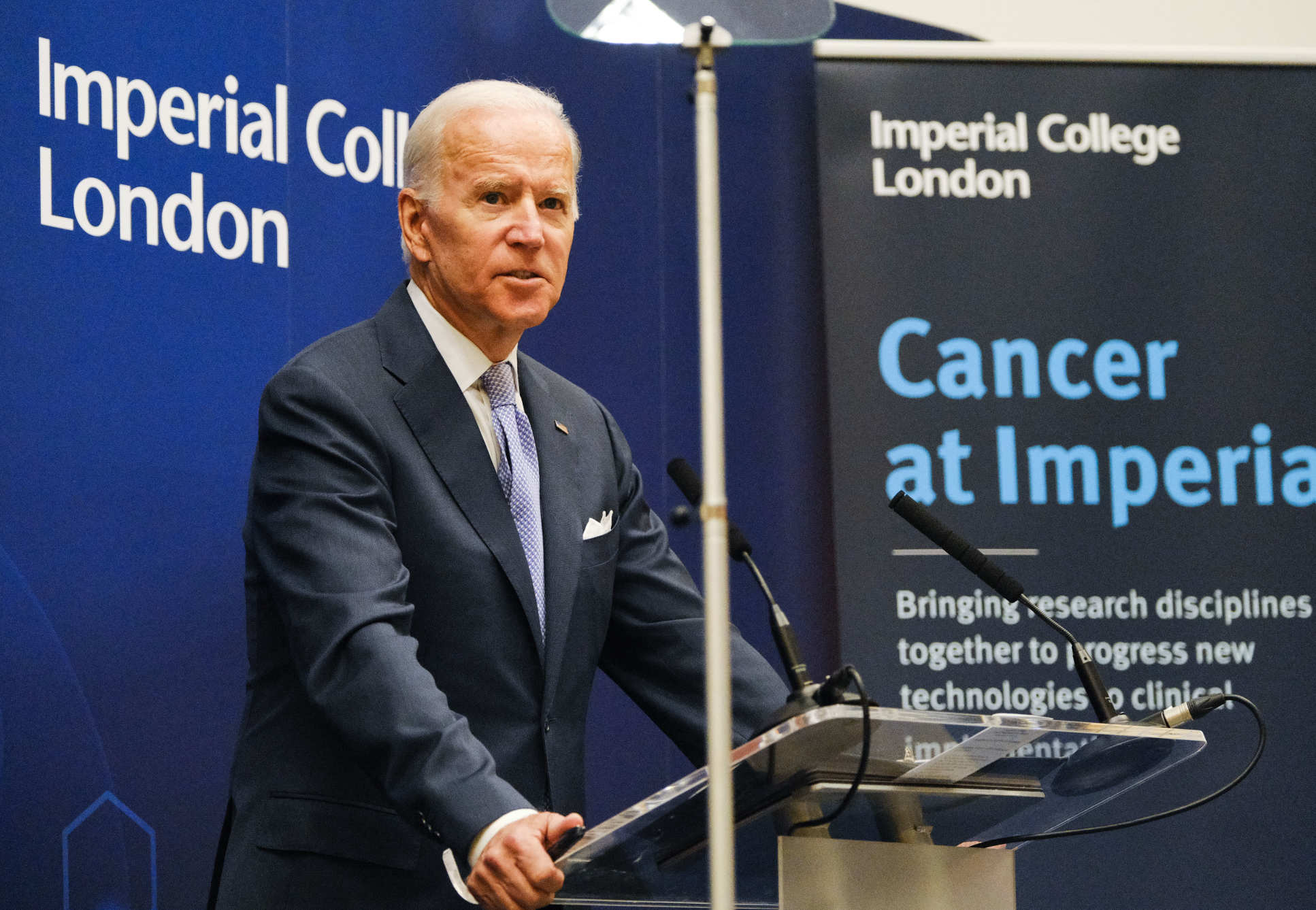
At Imperial, the former Vice President called for scientists around the world to collaborate in new ways, make data more widely accessible and create a cancer research and care system that the public deserves.
Vice President Biden, who described Imperial’s cancer work as “impressive”, said: “I’ve never seen folks as bright and who work as hard as all of you. You are the most talented community in the world – please break down the silos, continue to collaborate in ways that haven’t existed before. Your work is important.”
Vice President Biden warned that by 2025 there will be almost 20 million new cancer cases and 11.4 million deaths around the world every year.
Vice President Biden added: “We need to use all the expertise we have working together to take down this disease. The only truly bipartisan thing that exists in America is the fight against cancer.”
Changing the way we do cancer research
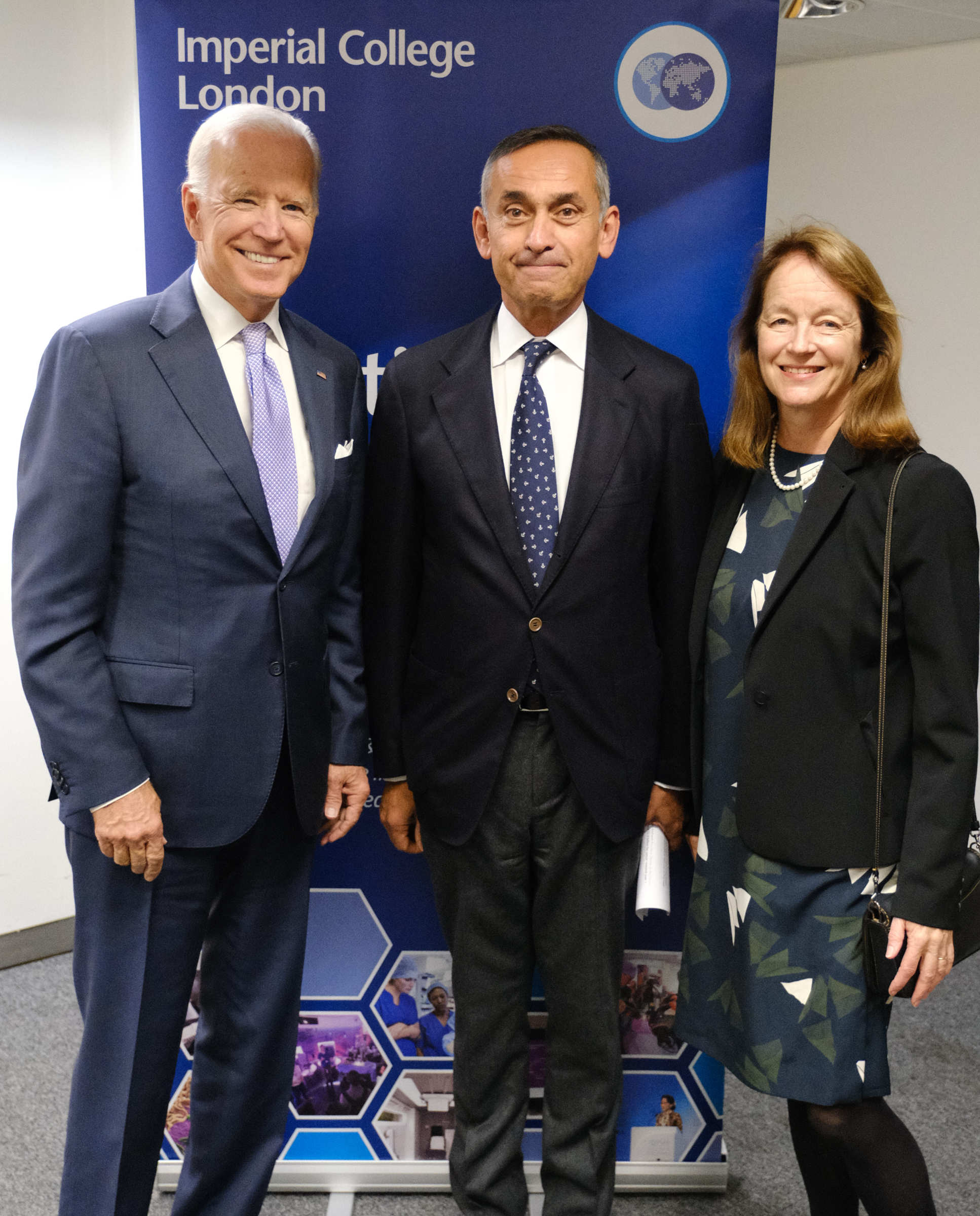
Vice President Biden explained that the initiative was “changing the way we do business in cancer research and care” and had helped foster new collaborations with countries all over the world.
He said: “We cannot accept disparities of outcomes by race, gender and geography.”
“We cannot accept unaffordable treatments. We cannot accept failing to adopt policy to address risk factors such as obesity, smoking and alcohol consumption, as Lord Darzi wrote in his report [Review of Health and Care].”
Encouragingly, Vice President Biden said that we’ve begun to “make real progress” in the fight against cancer. Vice President Biden said: “I can see the day where prevention is more effective, when care is personalised and side effects are less harmful.
“When children are vaccinated against cancer. When we can identify through markers in the blood cancers that haven’t developed yet. When we can identify early signals of cancer in the blood through fragments shred from cancer cells. There is hope.”
United efforts in fight against cancer
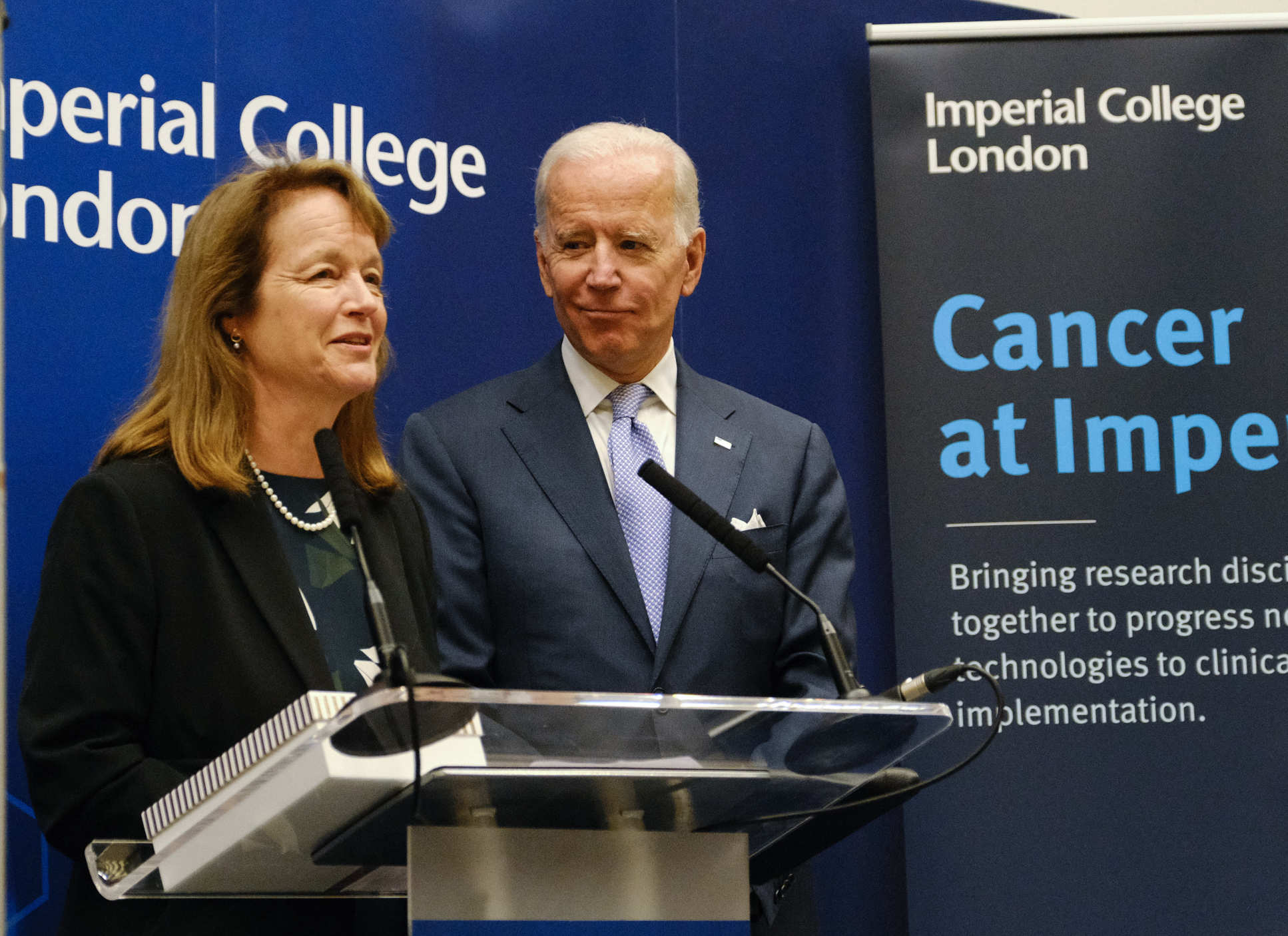
Thanking Vice President Biden for his lecture, Imperial’s President Alice Gast said: “You have helped us today to launch a landmark collaboration between Imperial, the Institute of Cancer Research and Cancer Research UK.
“Everyone here is united in their determination to win the battle against cancer. We are making discoveries that will change outcomes. As we know, cancer observes no borders and has devastating consequences around the world.
“We need to unite our efforts across borders. We do our best work when we collaborate and break down silos – and Imperial is particularly good at that. It’s such an inspiring initiative and brings together our fight.”
The Imperial CRUK Centre is a partnership between Imperial College London, Imperial College Healthcare NHS Trust and Cancer Research UK.
Extraordinary leadership in the fight against cancer
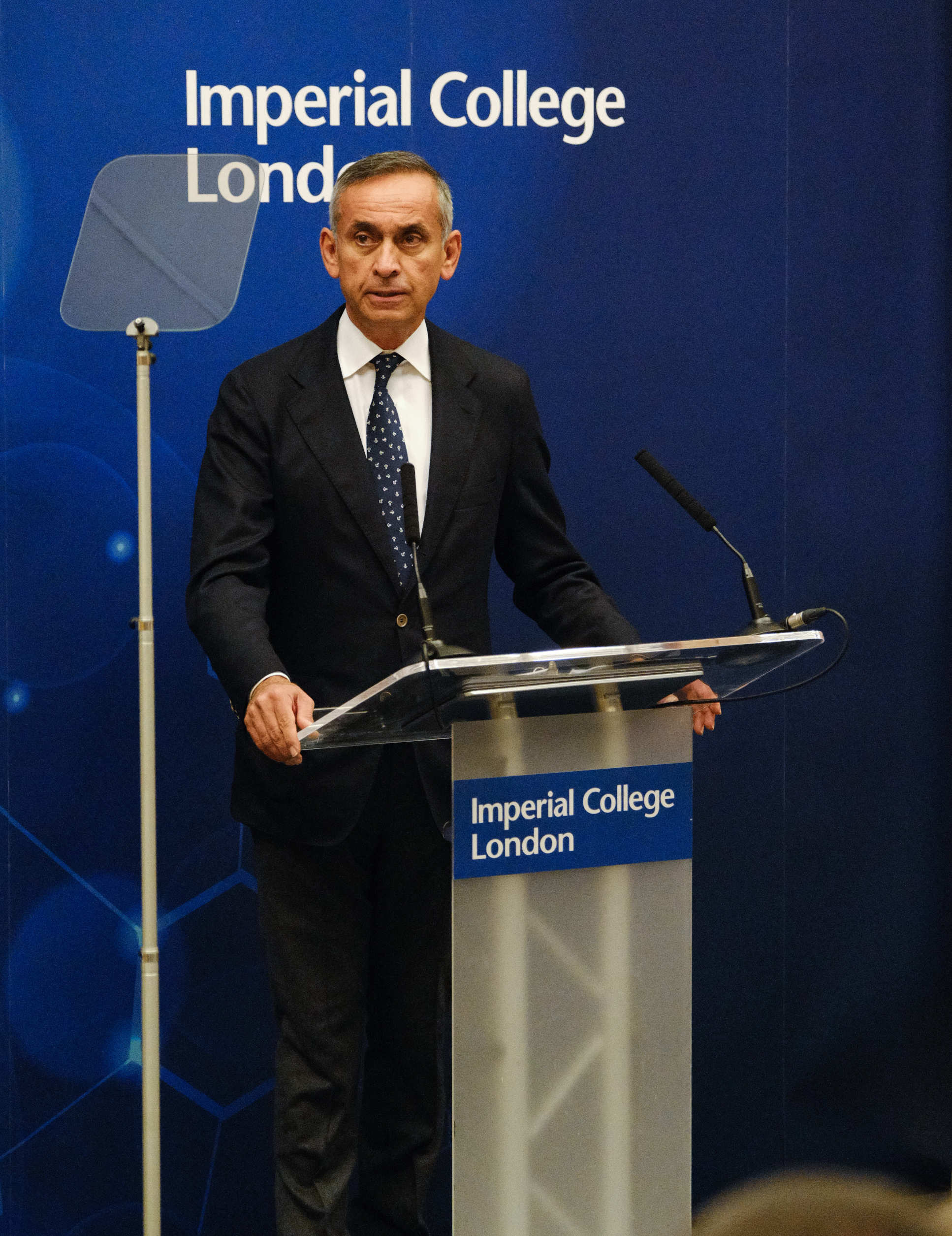
The Imperial Centre, which brings together interdisciplinary experts, has two key themes: reducing the burden of cancer and increasing the precision of cancer treatments.
Lord Darzi, the Centre’s Director, welcomed the Vice President to Imperial and said he had “brought extraordinary leadership to the fight against cancer”. Lord Darzi said: “You have joined the fight against cancer in the US and around the world and we are so glad you have become part of this team.
“You have spoken so movingly about the tragic loss of your son Beau. Your personal story has touched us all. There is no better example of turning a private grief to public good than Biden Cancer Initiative.
“Here at Imperial we bring together researchers from a range of distinct disciplines to transform patient care and this is exemplified by the new centre.
“We can achieve so much more working together than apart – we are one global team. We can make hope real. As President Obama once said – yes we can.”
Biden Cancer Initiative
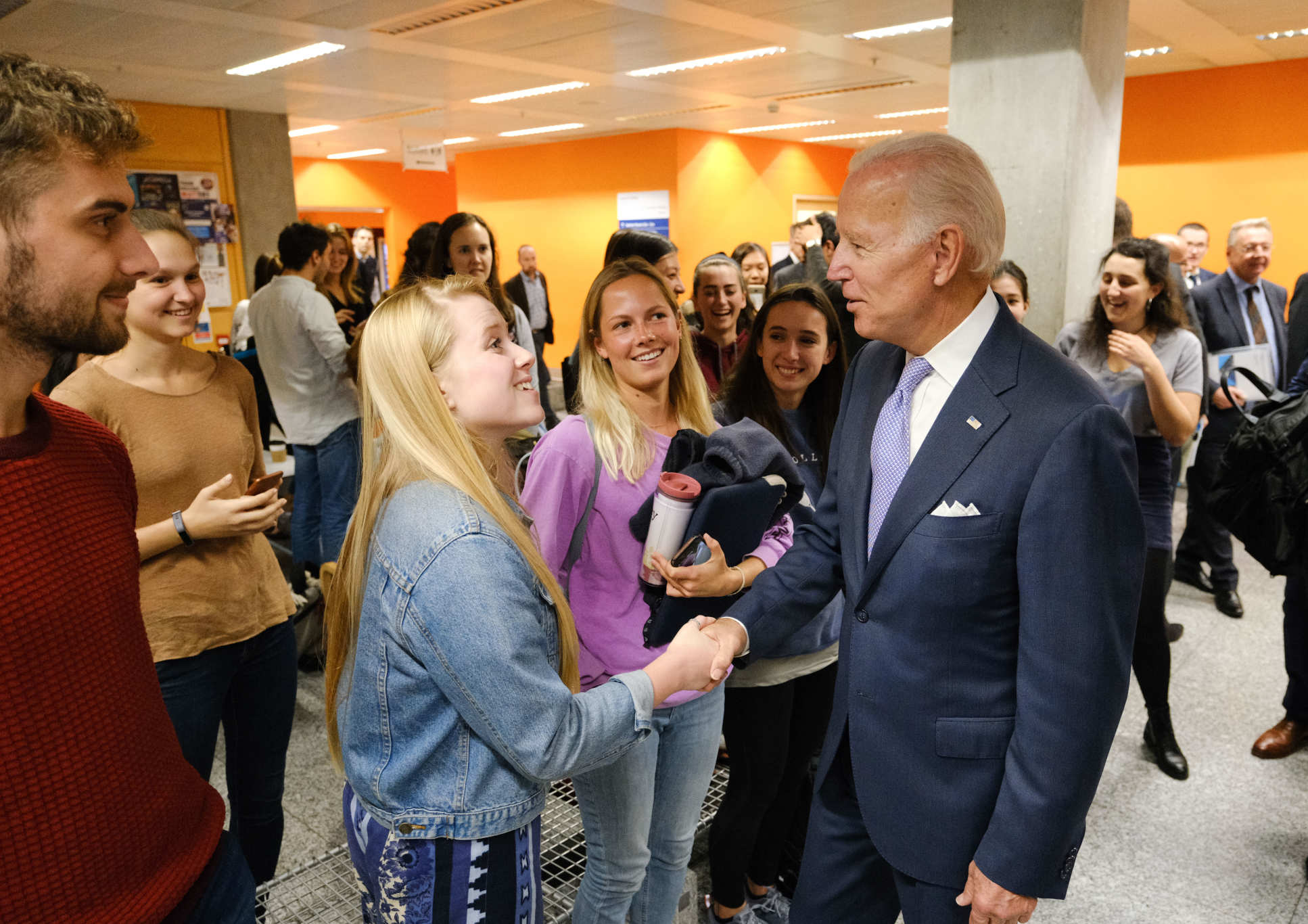
By the end of the Obama Administration, Vice President Biden’s Cancer Moonshot programme had launched almost 80 new collaborations, brought together 7,000 people at 300 events and shepherded the 21st Century Cures Act into law, including $1.8 billion additional investment by the National Cancer Institute.
After leaving office, the Vice President established the Biden Cancer Initiative, with his wife Dr Jill Biden, to continue the work.
At the launch of the Initiative in June 2017, he said: “Every minute, every day matters to patients and we must bring that same sense of urgency to cancer research and care systems.”
_
Photography by Owen Billcliffe
Article supporters
Article text (excluding photos or graphics) © Imperial College London.
Photos and graphics subject to third party copyright used with permission or © Imperial College London.
Reporter
Stephen Johns
Communications Division
Andrew Scheuber
Communications Division